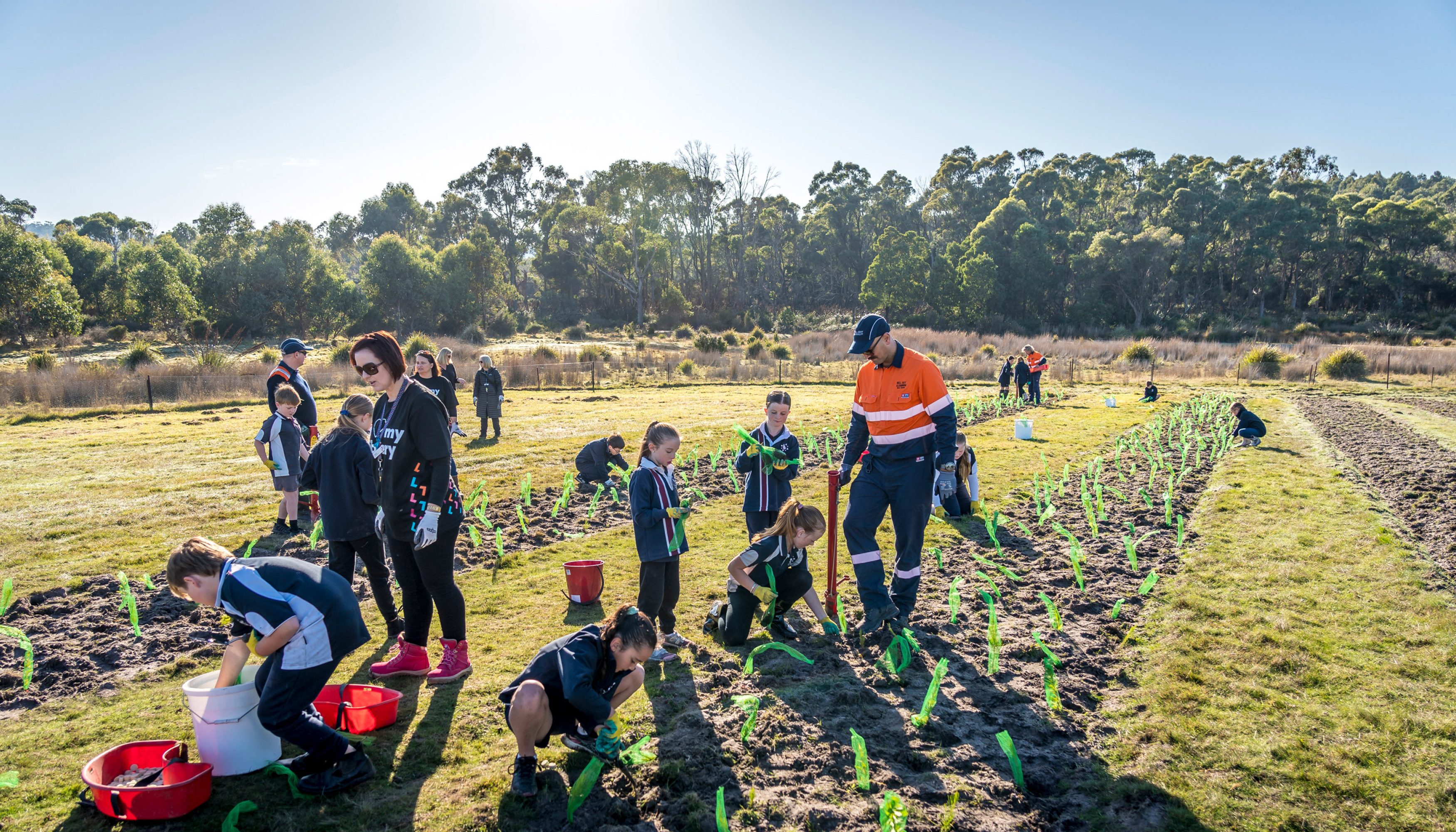
Environment
We are responsive to changing environmental challenges and values, ensuring that we meet and where possible exceed increasing community expectations of environmental performance.
Bell Bay Aluminium understands our important role in minimising our impact on, and the protection of, the environment for future generations.
Wherever possible we prevent, or otherwise minimise, mitigate and remediate the effects of our business’ operations. We assess the impact of our activities and products in advance, and we work with local communities and agencies to manage and monitor these impacts. We ensure that everyone who works at the smelter understands the site’s interactions with the surrounding environment.
Safely looking after the environment is an essential part of our care for future generations.
Accredited environmental management systems
Bell Bay Aluminium aims to achieve environmental best practice by minimising the waste, emissions and impacts associated with our activities through implementing effective mitigation and management strategies.
We are proud of our AS/NZS ISO 14001:2004 accreditation for environmental management systems and we work hard to ensure this accreditation is maintained through:
- Appropriately managing our land holdings
- Regularly monitoring our environmental performance
- Adoption of the 'reduce, re-use, recycle' philosophy
- Investment in state-of-the-art technology
- Processes and production improvements to significantly reduce our emissions
- A focus on transparency and engagement with our neighbours and the community.
Bell Bay smelter wetlands
The Bell Bay smelter wetlands were constructed between January to June 1996, designed primarily as a filter system for run-off water from the smelter site before entering the Tamar River environs.
The wetlands include aquatic plants and native vegetation to take up and store pollutants and excessive nutrients, while providing habitat for local native wildlife, including birds, mammals and amphibians.
Preserving our local environment with tree planting
With the assistance of local school students, Bell Bay Aluminium has planted more than 25,000 trees in the Launceston and Tamar Valley region over the past seven years.
Our annual tree planting initiative is an opportunity for students to learn about the importance of tree planting for the environment and their local community.
Decarbonisation is a way of making our business better for all that work here and for our customers, who expect our products to be produced with a low carbon footprint.
Bell Bay Aluminium has its part to play in the journey towards Rio Tinto’s climate commitment of reducing carbon dioxide emissions over time.
In December 2022, we held a decarbonisation workshop to review Bell Bay Aluminium’s current roadmap, set our targets through to 2050 net zero and identify actions to get us there.
The workshop had representation from all departments, with support from the Climate Change team in our Brisbane head office.
To achieve the reduction in emissions, we have a phased plan leading to 2050, noting that some of these initiatives are subject to long-term power arrangements in Tasmania:
- Short term: For the next three years, we are focused on emissions-reducing projects including our fire control upgrade and refractory design changes in the carbon baking furnace, as well as implementing operating best practices to minimise anode effects, carbon and fuel consumption.
- Medium term: From 2025 to 2030, we will commence work towards transitioning to renewable fuels and electric vehicles.
- Long term: Post-2030, we plan to transition to inert anodes (Elysis) when commercially available, convert remaining fuels to renewable-like hydrogen and capture remaining carbon emissions through new technology.

